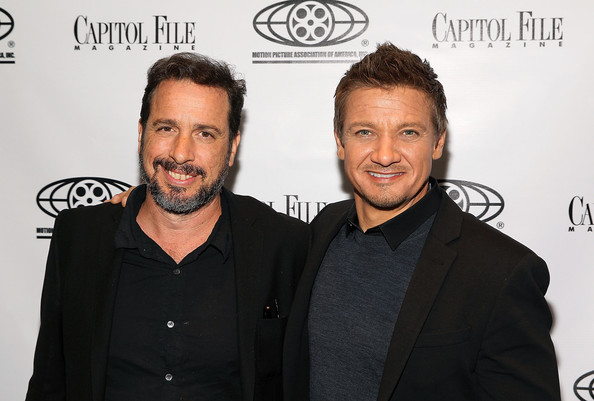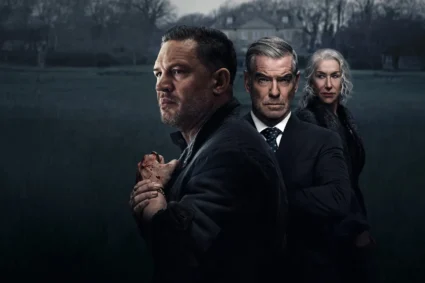
On this edition of INTERVUE, Dean talks to actor Jeremy Renner and director Michael Cuesta about their new movie, Kill the Messenger, which opens in theaters this Friday. Kill the Messenger is based on the true story of Pulitzer Prize-winning newspaper journalist Gary Webb, who in the 1990s who documented CIA involvement in importing cocaine in the 1980s, to help fund the Contras in Nicaragua and paid the ultimate price.
How much you knew about the story before you came on to the project?
Jeremy Renner: I knew nothing of it. My only recollection or experience of it was downstream part of the story, which is when they start doing the PSAs on the war on drugs. I auditioned for it as an actor like in 1992. I didn’t get it but I remember I was sitting in this room and they asked me to sort of tear it apart. It was this thing of “This is your brain on drugs.” I didn’t know what I was doing or what was this for. I remember the war on drugs stuff. Mind you, I am from the area where the story first broke. I am seventy miles from Modesto, California and knew nothing of it. The writing, the story, the dark alliance knew nothing about. I was blind to it and it was the main emphasis to really want to know and explore it some more.
Michael Cuesta: I came to project pretty late after Jeremy’s production company was setting up the script. When I read the script, you know I quickly red the books “Kill the Messenger” and quickly dug into Gary Webb’s book “Dark Alliance”. I did remember the story from the 90’s but I just remember the story “What? The CIA has the complexity of spreading crack in South Central and America.” I did know about him being discredited as he was and that he made a great sacrifice and what happened after that. I think it was the in-fighting, paper versus paper that I found was really the important story to get out there. I find it quite relevant to what’s going on now. That’s where really where I was just sort of the injustice of that is I became passionate and then of course, Jeremy playing Gary. As I am reading the script and reading the book, I am imagining Jeremy in the role knowing this is going to work because I worked with him before. I knew that he was going to be incredibly honest and nuanced with this character and no overly archetype.
While doing the research for the role, what’s the one thing that struck out for you?
JR: I mean all of it, it all brand new to me. I felt like everything that I’d learned, this has to go to the movie. All this stuff I have to observe is human behavior. With that you have to become masterful and laser-like. Everything that Gary Webb and what he represented, I have to take in because how he dress or what music he listens to, all that tells how he reported in. He wasn’t in a tight button suit reporting a perfect story. He was sloppy and his writing’s a little sloppy. Everything I do with Gary have to match somehow, someway. I felt that everything informs something else and it’s just as important as the shoes he wore.
MC: I saw a picture of Gary in one of the books that Sue, his wife had sent us, of him in a t-shirt that said “Police State”. So, that said so much and he looked like a cop because he had the mustache. He looked like the guy who represented the proletariat – the people. He like hockey and was into motorcycles. He lived a simple life. He didn’t come from the upper West side. This was so informative of how he did his reporting and how he walked. He had a moral code. I think he did se the bad guys and the good guys very early as what he saw in the possibility of the story. He was dogged about identifying who those are and breaking that out. He was criticized a lot for that. It’s not that he’s black and white but he definitely came from that. He was known in high school for calling Bull**** very quickly. He just loves to do that. Obviously, when you’re going after the biggest establishment in the world, it was going to be a world of trouble
What’s the overall message you both hope that audiences will take away from this film?
JR: I am not hoping for a message or the means, I am curious to know what people talk about; I want them to talk about it. I want them to take away something they didn’t feel or something they didn’t think about before they paid those eleven dollars to see the movie. It’s a cinema experience that I want repeated- it’s an amazing. If it’s an argument or a debate, feel angry or something, then that means we did our job. What the actual takeaway is, it’s going to be different and hopefully a subjective opinion to each audience member because we’d opened a wide can of worms here. No matter where you’re at in this, some of the journalists maybe people who don’t know anything about it or don’t care about it. There’s going to be something, hopefully that if I want audience to take away from is something to be emotional or something cognitive.
MC: Yeah, it’s to get people talking. There’s a lot in the movie and we keep saying that there’s a whole another part of this. There are victims here. Gary did his writing and the silver lining was that there was some vindication here. He did get people asking questions since the CIA director never went down to South Central. So, that was a great thing that came out of it. Plus they admitted to a lot of his allegations ultimately. I would say that the importance of guys like this and the truth is pretty nuanced and we need people to dig into that because when its nuanced ok, then get the nuanced out there but that’s a lot of work. It takes a guy like Webb who was so dogged with his getting details and research that they need to be supported.
And that takes a lot of courage because some reporters don’t want to piss off that person. They want to keep their jobs but they are those brave few who see the wrong and want to put it out there.
MC: Yeah and he made the sacrifice.
Thank you Jeremy Renner and director Michael Cuesta! Check out Kill the Messenger from Focus Features, coming to theaters THIS FRIDAY, October 10th!


